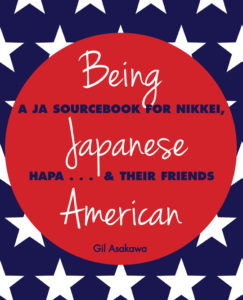Web comedy series “Slanted” skewers, celebrates “FOB” generation’s values
 Like it or not, we all come from immigrant roots. Like European Americans and African Americans, our families all arrived on these shores from somewhere else. Over the generations, we maintain some of our ethnic cultural values, and discard others.
At some point, most Asian Americans suddenly feel embarrassed about our parents because they're so... Fresh Off the Boat, or FOB. Like "queer" to the gay community, "FOB" is a term that was once and is still used as an insult but has become code for just plain "old-fashioned" within our community, and is even used affectionately.
Andrea Lwin, an affable, funny and talented LA-based actress and writer, celebrates the FOB-ier side of Asian American family life in her warm and witty web series, "Slanted." So far, she and her director and co-producer, Cristina Anderlini, have completed two episodes in the web series (above), which they're funding themselves. Maybe someone will step to the plate to help them finance future episode; for now, Lwin expects to have another segment done early next year.
The two episodes build on Lwin's one-woman show of the same name, a fictionalized autobiography of growing up in an Asian American family with parents who are, well, still FOB-ish. I know this feeling, because although my brothers and I were all born in Japan, our family came to the U.S. when we were young and we're about as all-American you can get. But my mother, who was born and raised in the northern island of Hokkaido, is still a FOB in so many ways, more than 40 years after our arrival on these shores. I guess that would make her "Not-So-Fresh-Off-the-Boat."
I met Andrea in person at the BANANA conference of Asian American bloggers last month, and exchanged emails afterwards. Here is the Q&A I had with her about "Slanted":
Like it or not, we all come from immigrant roots. Like European Americans and African Americans, our families all arrived on these shores from somewhere else. Over the generations, we maintain some of our ethnic cultural values, and discard others.
At some point, most Asian Americans suddenly feel embarrassed about our parents because they're so... Fresh Off the Boat, or FOB. Like "queer" to the gay community, "FOB" is a term that was once and is still used as an insult but has become code for just plain "old-fashioned" within our community, and is even used affectionately.
Andrea Lwin, an affable, funny and talented LA-based actress and writer, celebrates the FOB-ier side of Asian American family life in her warm and witty web series, "Slanted." So far, she and her director and co-producer, Cristina Anderlini, have completed two episodes in the web series (above), which they're funding themselves. Maybe someone will step to the plate to help them finance future episode; for now, Lwin expects to have another segment done early next year.
The two episodes build on Lwin's one-woman show of the same name, a fictionalized autobiography of growing up in an Asian American family with parents who are, well, still FOB-ish. I know this feeling, because although my brothers and I were all born in Japan, our family came to the U.S. when we were young and we're about as all-American you can get. But my mother, who was born and raised in the northern island of Hokkaido, is still a FOB in so many ways, more than 40 years after our arrival on these shores. I guess that would make her "Not-So-Fresh-Off-the-Boat."
I met Andrea in person at the BANANA conference of Asian American bloggers last month, and exchanged emails afterwards. Here is the Q&A I had with her about "Slanted":
14 December, 2009




 Erin and I have come to love "
Erin and I have come to love " My friends at sites such as
My friends at sites such as  I should just shake my head and mutter, "Kids these days, what were they thinking." But I have deeper feelings than that, and I'm terribly saddened by the
I should just shake my head and mutter, "Kids these days, what were they thinking." But I have deeper feelings than that, and I'm terribly saddened by the 

 We attended a birthday party of sorts last night, except there was no cake. Ever since Japan stationed a
We attended a birthday party of sorts last night, except there was no cake. Ever since Japan stationed a  Last time we checked in on the smart promotion sponsored by the Thai government, "
Last time we checked in on the smart promotion sponsored by the Thai government, " The first single from
The first single from 

